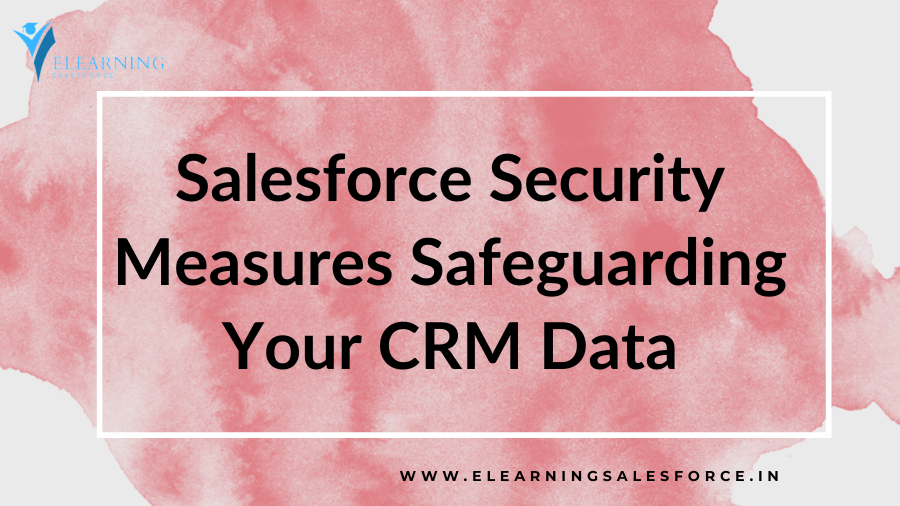Introduction
Salesforce Security Measures: In a digital era where data is the backbone of business operations, securing sensitive information becomes paramount. Salesforce, a leading CRM platform, is not exempt from the evolving landscape of cyber threats. This article explores the various security measures organizations can adopt to fortify their Salesforce instances and protect valuable data from potential breaches.
Understanding Salesforce Security
Salesforce, known for its robust CRM capabilities, also prioritizes security. The platform employs multiple layers of protection to ensure the confidentiality, integrity, and availability of user data. From secure login processes to advanced encryption techniques, Salesforce aims to provide a secure environment for businesses to manage their customer relationships.
Common Security Threats in Salesforce
As the digital landscape advances, so do the threats. Phishing attacks, unauthorized access attempts, and risks of data leakage are among the common security challenges faced by Salesforce users. Understanding these threats is crucial for implementing effective security measures.
Salesforce Security Best Practices
User Authentication and Access Control
The first line of defense in Salesforce security is robust user authentication. Enforcing strong password policies and implementing multi-factor authentication significantly reduces the risk of unauthorized access. Additionally, role-based access controls ensure that users only have the permissions necessary for their roles.
Data Encryption
Data encryption is a non-negotiable aspect of Salesforce security. Encrypting sensitive data both at rest and in transit adds an extra layer of protection. Admins should carefully choose encryption algorithms based on industry standards and the sensitivity of the data being processed.
Regular Security Audits
Security is an ever-evolving field, and routine security audits are essential for staying ahead of potential vulnerabilities. Regularly scanning the Salesforce environment for weaknesses and promptly addressing any issues identified ensures a proactive approach to security.
Monitoring and Logging
Real-time monitoring of user activities and system events is crucial for early detection of security threats. Logging mechanisms provide a trail of activities, facilitating forensic analysis in the event of a security incident. Swift response to anomalous behavior is key to minimizing potential damage.
Employee Training
Human error remains a significant factor in security breaches. Educating employees about security best practices and conducting regular training sessions keeps users informed about the latest threats and ensures they play an active role in maintaining a secure environment.
Real-life Examples of Salesforce Security Incidents
To drive home the importance of robust security measures, let’s delve into real-life examples of Salesforce security incidents. These case studies shed light on the consequences of inadequate security practices and offer valuable lessons for organizations seeking to fortify their CRM security.
Proactive Measures for Enhanced Security
Staying proactive is the key to maintaining a secure Salesforce environment. Regularly checking for and applying Salesforce security updates is critical. Engaging with the vibrant Salesforce community provides valuable insights into emerging threats and best practices.
Conclusion
Salesforce, as a CRM powerhouse, offers a secure foundation for managing customer relationships. By implementing comprehensive security measures, organizations can build an impenetrable fortress around their CRM data. From user authentication to proactive monitoring, each measure contributes to a holistic security strategy.
FAQs
- How often should security audits be conducted on Salesforce?
- Security audits should be conducted at least quarterly, if not more frequently, to identify and address vulnerabilities promptly.
- Why is employee training a crucial aspect of Salesforce security?
- Employee training ensures that users are aware of the latest security threats and best practices, reducing the likelihood of human errors that could lead to security breaches.
- What are the consequences of data leakage in a Salesforce environment?
- Data leakage can lead to reputational damage, financial losses, and legal repercussions. Protecting sensitive data is essential for maintaining trust with customers and stakeholders.
- How can organizations stay informed about the latest Salesforce security updates?
- Organizations can subscribe to Salesforce’s official channels, forums, and community groups to receive timely updates about security patches and best practices.
- Is multi-factor authentication necessary for all Salesforce users?
- Yes, implementing multi-factor authentication for all users adds an extra layer of security, significantly reducing the risk of unauthorized access.
